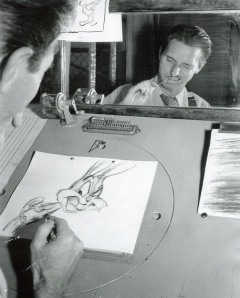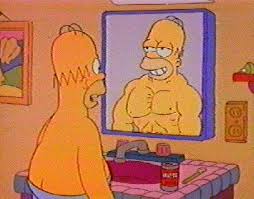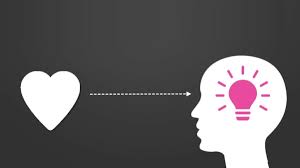My day job is producing animation. I’ve been doing it a long time, but still remember the first time I walked through the studio and noticed 1) how quiet it was as each artist worked with headphones on, and 2) that the storyboard artists and animators spent a lot of time
 looking into mirrors they had mounted over their desks. That’s how they work out the expressions they are wanting to convey based on what is happening in the story at that particular moment. Many years later, I spent a great deal of time trying to show an animator the expression I wanted for a scene in Mulan 2, unsuccessfully I might add. I was looking for a way to visually show the sarcasm in Mulan’s voice. Much harder to pull off than I had expected.
looking into mirrors they had mounted over their desks. That’s how they work out the expressions they are wanting to convey based on what is happening in the story at that particular moment. Many years later, I spent a great deal of time trying to show an animator the expression I wanted for a scene in Mulan 2, unsuccessfully I might add. I was looking for a way to visually show the sarcasm in Mulan’s voice. Much harder to pull off than I had expected.
But, on that first day I immediately understood the multiple layers of emotional exploration the animators need to explore to become great storytellers. Sure they can make faces until the right one becomes apparent, but if they actually conjure up feelings as they play, they’ll hit pay-dirt.
I was reminded of this the other day after a girlfriend and I had been talking about our spouses (yeah, okay, we were dishing on them big time). In the midst of my criticisms she hurled a great question at me. If my spouse were having this same kind of conversation (fat chance) what would he say are the things that drive him crazy about me?
I was flummoxed by this. After all, I’m perfect (just kidding). Her question plagued me on the drive home and as I drifted off to sleep.
The next morning while on my walk the answer surfaced. “He probably thinks you’re a know-it-all.” It was difficult to hear. I felt embarrassed, as if someone else could hear my inner voice chattering away. I felt like a kid re-experencing the humiliation of getting caught chewing gum in class and having to wear the wad on my nose for the rest of the school day. I could feel my ego rise up to protect me, to help me hold onto the way I want to see myself, perfect in every way. But then an image of Homer Simpson popped into my head. See how delusional he is?
I don’t want to be in his club! So I turned (metaphorically) towards the mirror and took a peek. Yeah, I could see more people than my spouse perceiving me to be a know-it-all. I even had to admit that I get tired of hearing my advice. But it still didn’t feel good to acknowledge it. I was present enough to realize that meant I needed to ask my ego to go play somewhere else for awhile, and soon I felt a mental leveling of the playing field take place. Now that I had faced this ugly part of myself I’d have a harder time being self-righteous the next time my spouse pulled one of his uglies on me. I could live with that.
But it wasn’t until later that I fully understood the larger gift my friend’s question had bestowed.
If I want to become a writer who can cultivate a base of appreciative readers (and I do), then like the animators who have given us unforgettable moments in movies like Toy Story 3, Wall-E, or The Lion King, I must look into the mirror and know the good, the bad and ugly of myself. For without a deeper understanding of what makes me tick, how can I fully know and give authenticity to my characters? How can I convey the degree of loneliness my protagonist feels to have lost her mother at age 16, the pitch of the downward spiral she finds herself in as she rejects the father who abandoned her 10 years earlier, or the breath of the joy she feels when she plays her harmonica, if I do not risk looking into the mirror and becoming deeply connected with the parts of myself I have safely hidden away?
My AHA moment made it clear to me that if I want to be a conduit for expanding my readers’ emotional lexicon then I must explore my own without resistance.
So, I turned towards my internal mirror and peeked through my fingers with trepidation. What would I see buried in the crevices of my heart or staring at me from my ego mind? Mostly, I saw the little girl I never seem to shake away. Look at her. 
She’s confident and capable, yes, but she often feels like an outsider. Is that a legacy from my parents’ experiences as children not raised with their own parents? Is that why I’m exploring a protagonist who has lost a parent? I keep returning to this, not to rub an old wound, but to FULLY FEEL and use it to inform my writing.
I move my face closer into the reflection and acknowledge the fear of being judged hidden behind those eyes. My mind races back to high school when in 9th grade I was passed over for a position in the student government. I cried all the way home on the bus. My mother was only capable of consoling me with the realities of the world, “you can’t expect to always win, Lynne.” She didn’t know how to address my dreams of making a difference or being significant. She had never aspired to such things. Or I wasn’t aware of that part her if it existed. Thinking that makes the wound seem deeper. Could my disappointment be genetically encoded?
But now these wounds I’ve worked hard to bury or have used to justify my behavior can be put to better use. If I allow myself to REALLY FEEL the emotions locked inside these memories, my characters’ choices can be cultivated with the detail necessary to reveal the emotional through-line that is driving them.
This is so exciting!!!
So, like the animators I work with, I am now a fan of the mirror. Sometimes I make faces, other times I just stare at the other me who is eager to share everything hidden behind the looking glass.
The alchemy that happens by throwing what I’ve discovered about myself into the bucket with the words and ideas and plot that will become a manuscript is magic. I’m feeling equipped to make some magic happen.
Mirror, Mirror on the wall…. Lynne



You hit pay dirt with this one!
LikeLike